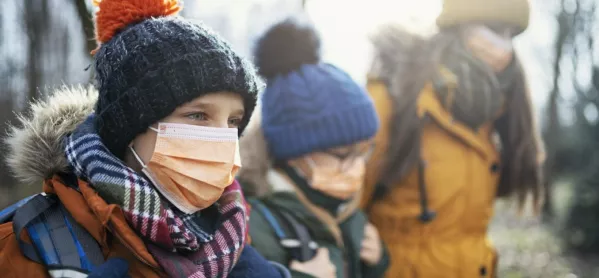There is “every prospect” there will be a “considerable surge” in Covid-19 cases when schools reopen after the summer break, an expert government advisor has warned.
Professor Peter Openshaw, who is a member of the government’s specialist New and Emerging Respiratory Virus Threats Advisory Group (Nervtag), warned today that a rise in transmission when students go back to school is “inevitable”.
Speaking on BBC Radio 4‘s World at One programme earlier today, Professor Openshaw, who is also Professor of Experimental Medicine at the National Heart and Lung Institute, Imperial College London and the President of the British Society for Immunology, said:
“There is an awful lot of infection around. If we think there were over 33,000 confirmed positive test results as of yesterday, and an increasing number, this has by no means gone away, and we are at a time of year when schools have broken up and when the weather is relatively good and we’d expect relatively low transmission.
“I think many of us feel that there’s every prospect of a considerable surge when the weather deteriorates and people go back to school.”
Guidance: DfE Covid contingency framework: Schools told when to ‘think about’ extra measures
Exclusive: How DfE scrapped its previous system for managing Covid in schools locally
Contingency framework: Schools told to plan for more remote learning
He added too that earlier evidence transmission was not being driven by schools could now be outdated as it was collected when there were “much less transmissible variants”, and it now looks like younger people in their teens and twenties are “sustaining circulation”, so therefore it “seems inevitable that those younger groups will be driving transmission” which means schools reopening could drive an increase in infections.
Young urged to get the vaccine
His comments come as the government launches a campaign to drive uptake of the Covid vaccine among 16- and 17-year-olds in England.
Teenagers are receiving letters today, and follow-up text messages will be sent out tomorrow (Friday) in a bid to ensure as many older teens as possible are being jabbed ahead of their return to school.
More than 125,000 in the 16-17 age group have had the first jab in the two weeks since the NHS got the go-ahead to extend the rollout, with many already having been invited by their GPs.
When the number of those who were eligible previously due to an underlying health condition is taken into account, the total figure for teenagers is that group is more than 360,000, NHS England said.
Professor Sir Keith Willett, head of the Covid-19 vaccination programme in England, added: “Thanks to the dedication and hard work of NHS staff, and the teenagers who have already come forward for their jabs, the NHS has administered more than 125,000 first doses of the Covid-19 vaccine to 16- and 17-year-olds, protecting themselves, their families, and their friends from the virus.
“The vaccine is safe and effective with nearly nine in 10 adults already taking up the offer, and I would urge anyone eligible, especially those 16- and 17-year-olds heading back into education or training, to get their life-saving jab.”
Health secretary Sajid Javid urged teenagers to take up the offer of vaccine “as quickly as possible to ensure you get vital protection before returning to college or sixth form”.
“It is excellent to see the enthusiasm young people have shown to get a Covid-19 vaccine and help to build our wall of defence against this virus.
“Please don’t delay - vaccines are allowing us to live safely with this virus without restrictions and enjoy our freedoms,” he said.
At-risk children aged between 12 and 15 years old, who are clinically vulnerable to Covid or live with adults who are at increased risk of serious illness from the virus, are also being invited by GPs, with 30,000 children in this age group already protected, NHS England said.
